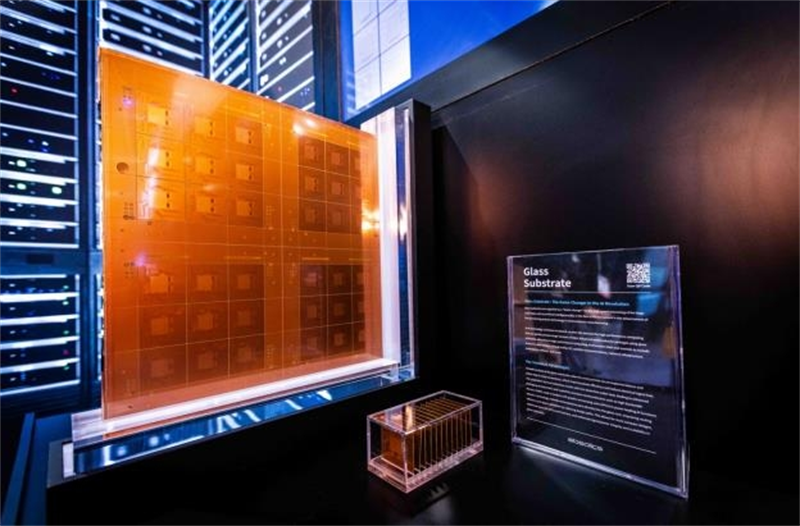As demand for AI semiconductors rises, the development of glass substrates—capable of significantly improving performance—is gaining momentum. At the CES 2025 in Las Vegas, advanced glass substrate technologies were showcased, signaling that the age of glass substrates could arrive sooner than expected, as major deals were struck between industry giants.
According to market research firm Markets and Markets, the glass substrate market is expected to grow by 18%, from USD 7.1 billion in 2023 to USD 8.4 billion by 2028. This growth is driven by the need for high-performance semiconductors, including GPUs and CPUs, to efficiently process large-scale AI data.
Glass substrates replace traditional organic materials, such as plastic, in semiconductor packaging. Theoretically, they can reduce the chip packaging thickness by up to 75%, effectively advancing semiconductor processes by one to two generations. For example, using glass substrates can enable a 7nm chip to achieve the performance of a 3nm chip.

SKC's Breakthrough at CES 2025
At CES 2025, SKC debuted its glass substrate, boasting a 40% improvement in data processing speed compared to traditional substrates. In addition, SKC's technology reduces power consumption and packaging thickness by more than half. Experts believe that SKC's glass substrates are already near commercialization, with potential to supply major companies like NVIDIA. SK Group Chairman Chey Tae-won confidently announced, "We just sold it," marking a key milestone in their glass substrate journey.
LG Innotek Paving the Way for Mass Production
LG Innotek is also accelerating efforts in glass substrate development. CEO Moon Hyuk-soo revealed plans to begin mass production of glass substrate prototypes by the end of 2025. LG expects glass substrates to be used in communication semiconductors within 2-3 years, and in servers within 5 years. This aligns with the growing demand for AI-powered technologies, positioning LG as a major player in the race for AI semiconductor solutions.
Industry Giants in the Race
Intel has been a pioneer in the development of glass substrate technology, having invested in R&D over the past decade. Rahul Manepalli, an Intel Fellow, emphasized in 2023 that organic materials could soon reach their limits in scaling transistors, citing issues such as power efficiency and shrinkage. He stated, "Glass substrates are a necessary step in the evolution of semiconductor technology."
Intel's commitment to glass substrates includes a USD 1 billion investment in its Arizona facility, where it established a dedicated R&D line. The company has developed over 600 inventions related to glass substrates, forming strong partnerships with key industry players.
Samsung Electro-Mechanics Joins the Competition
Meanwhile, Samsung Electro-Mechanics has set up a pilot line at its Sejong facility and is conducting sample promotions for potential clients. Full-scale production is expected after 2027, marking Samsung’s entry into the glass substrate market.
The Race Heats Up
With companies like LG Innotek, SKC, Intel, and Samsung leading the way, the competition to develop glass substrates is heating up. These industry leaders are positioning themselves to shape the future of semiconductor technology for AI applications, making it clear that the age of glass substrates could arrive sooner than anticipated
+86 191 9627 2716
+86 181 7379 0595
8:30 a.m. to 5:30 p.m., Monday to Friday
